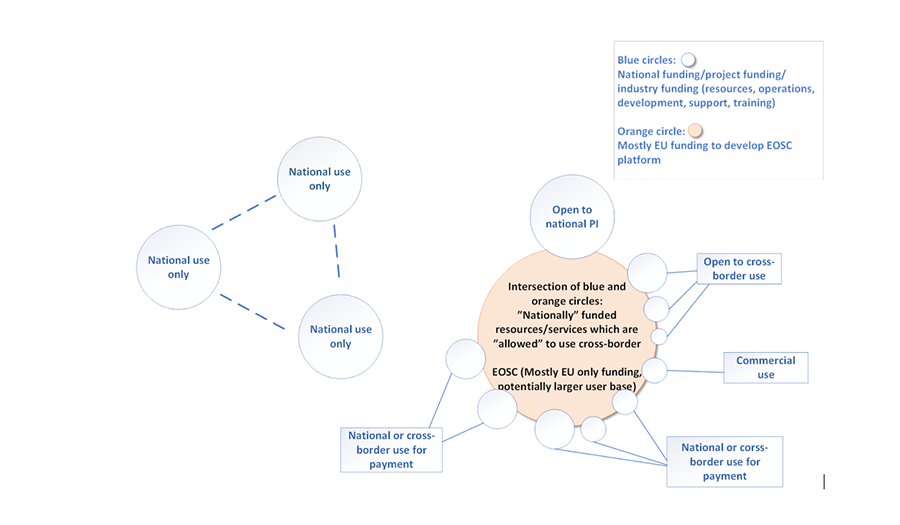Additional mapping of EOSC prospective service providers and candidate services is published
One of the objectives of WP3 is to assess the existing services offered to researchers by service providers in the Nordic-Baltic region and support them to fulfil requirements that are necessary for EOSC onboarding. A stamp of approval from EOSC would mean that researchers can find mature and reliable services.
Deliverable D3.5 is an extended report of D3.2: Mapping of EOSC prospective service providers and candidate services. It provides a list of additional EOSC prospective service providers and candidate services and reports on the work done to integrate the first set of services. Particular attention was paid to IT services that have the potential to operate on a cross-border basis.
The services mapped are mainly within five categories – compute, data storage, data analysis, data management, and data sharing, and they account for about 97% of all services in the inventory. Sixty services from eight countries/areas were captured. Results of the assessment were summarised and analysed, allowing to improve the overall service mapping process.
The assessment revealed that the cross-border concept is a complex matter. Most of the service providers that provided input to the service inventory are bound by national funding constraints and are providing services in the context of national research and education. Thus, only a few services in the mapped Nordic-Baltic inventory currently allow cross-border usage.
There are some good examples of cross-border collaboration, although they are not financed through generic research funding schemas. One such example is the LUMI supercomputer, which receives major funding from the EU and as well as from the participating countries. The number of services available for cross-border usage is slowly increasing due to the rising demand for cross-border consumption.
Mapping of services brings value to the service providers as they benefit from listing their service on the EOSC-Nordic’s regional portal or the EOSC portal. Identification and assessment of the drivers and inhibitors for cross-border consumption observed by the services seem highly relevant and can be investigated further.
